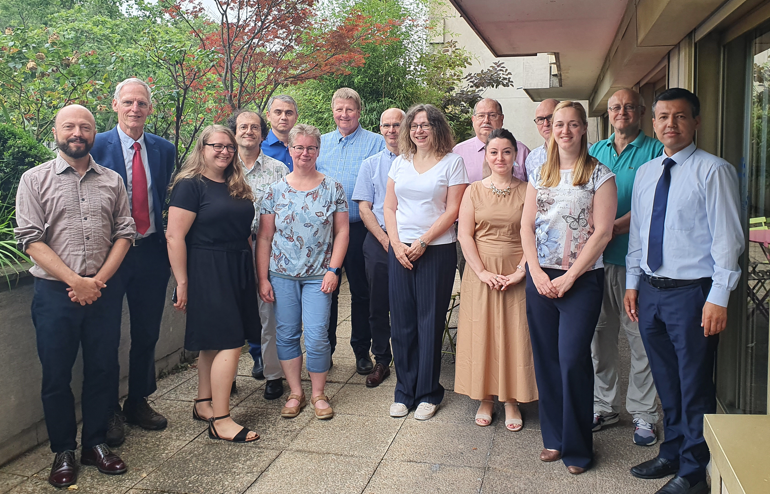
52nd Meeting of the Working Party on Plant Protection Products
Paris, 2022-06-20/21
The 52nd Meeting of the Working Party on Plant Protection Products took place in Paris, on 2022-06-20/21. Following the request of the EPPO Council the meeting was held back-to-back with the Working Party on Phytosanitary Regulations. On 2022-06-22 the two Working Parties met together to discuss the links between phytosanitary regulations and plant protection products policy. A separate online report of the joint meeting will be prepared. The meeting of the Working Party on Plant Protection Products was attended by 14 participants including 11 representatives from EPPO countries. This Working Party directs and supervises the technical work of the EPPO Panels concerned with the efficacy evaluation and registration of plant protection products. The major points from the meeting are summarized below.

EPPO Standards for approval
The Working Party on Plant Protection Products approved nine Specific Standards in the series PP1 Efficacy Evaluation of Plant Protection Products, including four new and five revised Standards. These will be submitted to the EPPO Council in September 2022 for final approval and subsequent publication in the EPPO Bulletin.
New Specific Standards
Ceratitis capitata and other tropical fruit flies on tropical fruit trees – bait application
Ceratitis capitata and other tropical fruit flies on tropical fruit trees – foliar application
Anthracnose in tropical fruits
Xanthomonas arboricola pv. juglandis on walnut
Revised Specific Standard
PP 1/56 Phytophthora spp. causing fruit rot on citrus
PP 1/228 Aphids on beet, including aphid vectors of viruses
PP 1/254 Eriosoma lanigerum in apple
PP 1/299 Aphids on citrus
PP 1/258 Aphids on stone and pome fruit
Resistance to PPP
The aim of EPPO Database on Resistance Cases ![]() is to share information among the responsible authorities for registration of plant protection products in the EPPO region and between authorities and other stakeholders. The added value of this database, when compared to other available databases, is the inclusion of information about early detection of resistance cases, as well as resistance cases that occur only locally, as long as they are based on data. The Working Party acknowledged this Database which is, since September 2021, available for EPPO member countries to propose and view resistance cases and for a wider audience to view validated cases.
is to share information among the responsible authorities for registration of plant protection products in the EPPO region and between authorities and other stakeholders. The added value of this database, when compared to other available databases, is the inclusion of information about early detection of resistance cases, as well as resistance cases that occur only locally, as long as they are based on data. The Working Party acknowledged this Database which is, since September 2021, available for EPPO member countries to propose and view resistance cases and for a wider audience to view validated cases.
The Working Party was updated on the progress with entering resistance cases to the database and agreed that EPPO countries should continue to provide cases, when needed and add information to the database. The Working Party encouraged the member countries that have not nominated a contact point (who will be responsible for entering data in the database) to do so.
Minor Uses Extrapolation Database
EPPO extrapolation tables for minor uses were prepared some years ago. Following the wishes of member countries, it was decided to set up a database to make the data in the extrapolation tables more searchable. The Expert Working Group on extrapolation database holds meetings twice per year. The Working Party was informed that the work on the prototype of the database is in progress and agreed that it should be finalized as soon as possible.
Work Programme
The Working Party discussed future activities and priorities which will be submitted, as part of EPPO’s Work Programme 2023, to the EPPO Council in September 2022 for approval. In addition to proposals for new Standards or revision of existing ones, future activities include new zonal examples, exploring availability of methods to test the effect of PPPs on transformation processes and standardizing the monitoring of pest sensitivity to plant protection products.
The next Working Party on Plant Protection Products is tentatively scheduled for 2023-05-31/06-02.
